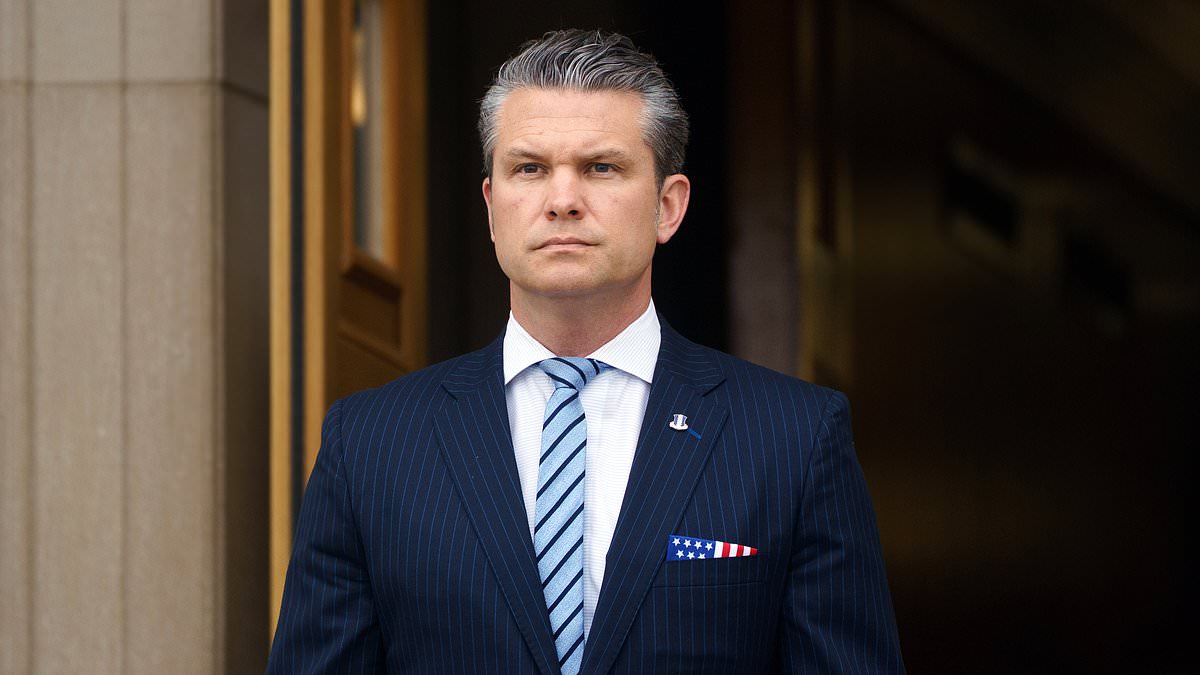The Supreme Court ruled on Wednesday that President Donald Trump’s ban on transgender troops can stand.
It’s a huge win for the president and his Defense Secretary Pete Hegseth.
The Supreme Court’s ruling lifts a lower court’s decision to pause Trump’s policy, which the administration called ‘dramatic and facially unfair.’
The order allows the Department of Defense to continue removing transgender service members from the military and denying enlistment while lawsuits continue in the lower courts..
On January 20, President Trump signed an executive order ordering Hegseth to enact a ban on ‘individuals with gender dysphoria’ serving in the U.S. military.
District Judge Benjamin Settle in Washington state ruled that the ban violated the Constitution’s guarantee of equal protection and barred the government from enforcing Trump’s policy.
The Trump administration appealed to the U.S. Court of Appeals for the 9th Circuit but it was rejected, prompting them to appeal to the Supreme Court.
Trump’s lawyers argued that the ruling was ‘contrary to military readiness and the Nation’s interests.’
The liberal justices – Sonia Sotomayor, Elena Kagan and Ketanji Brown Jackson – would have decided against Trump, they indicated in the filing, but the Supreme Court ruling was not signed.
The ruling was an emergency appeal prompting an unusually swift ruling from the Supreme Court justices, although they can rule on the merits of the case at a later date.
White House press secretary Karoline Leavitt celebrated the news in a statement.
‘Another MASSIVE victory in the Supreme Court!’ she wrote. ‘President Trump and Secretary Pete Hegseth are restoring a military that is focused on readiness and lethality – not DEI or woke gender ideology.’
The ban enacted by the Department of Defense on February 26 detailed that ‘the medical, surgical, and mental health constraints on individuals who have a current diagnosis or history of, or exhibit symptoms with, gender dysphoria are incompatible with the high mental and physical standards necessary for military service.’
The level challenge to the order was filed by Commander Emily Shilling, together with six other current transgender service members and one transgender person who wants to join the military.
Schilling appeared at the LGBT Community Center dinner on April 10 to be honored for the legal fight against the president and his administration.
‘I swore an oath to support and defend the onstitution,’ Schilling said. ‘That oath requires obedience to lawful orders. But when an order undermines the very principles I swore to uphold, I have the responsibility to challenge it.’
Shortly after he was inaugurated in 2021, President Joe Biden signed an executive order overturning Trump’s initial ban on service of transgender individuals in the military.
After Trump was inaugurated he ordered the ban to be reinstated.
Trump and Hegseth view the extra care required for transgender service members to be a distraction to military readiness.
In February, Hegseth ordered a pause on gender-transitioning medical procedures for active duty service members.
‘Effective immediately, all new accessions for individuals with a history of gender dysphoria are paused, and all unscheduled, scheduled, or planned medical procedures associated with affirming or facilitating a gender transition for Service members are paused,’ his memo said.
